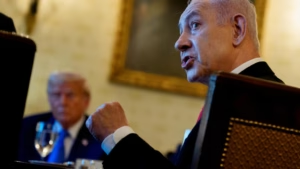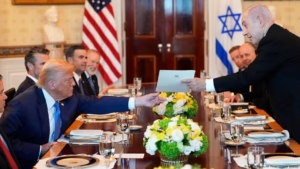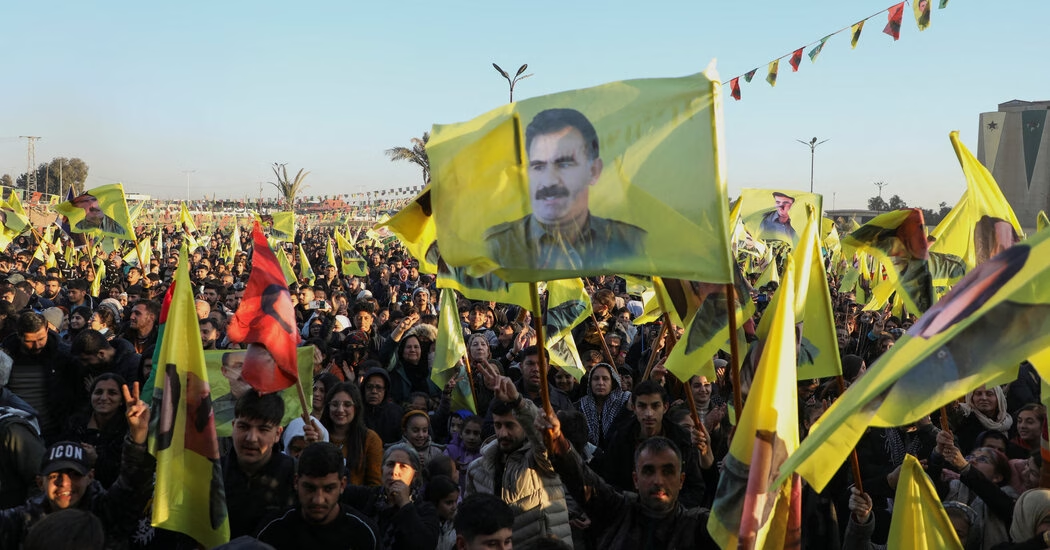The Kurdistan Workers’ Party (P.K.K.), a guerrilla group engaged in a long-standing conflict with Turkey, announced a cease-fire on Saturday. This move follows a call from the group’s imprisoned leader, Abdullah Ocalan, to disarm and dissolve the organization, sparking hopes for an end to a conflict that has spanned over four decades and resulted in tens of thousands of deaths.
The P.K.K. stated that the cease-fire would take immediate effect but added a condition for Ocalan to be released from his Turkish prison, where he has been held for twenty-five years, to oversee the group’s dismantling. This development could mark a significant victory for Turkey’s President Recep Tayyip Erdogan and potentially usher in a new era of peace in the region, where Kurds have been pursuing an armed struggle across mountainous areas of Iraq, Syria, and Turkey.
However, several questions remain unanswered, including whether Turkey will halt its military operations against the P.K.K., who will monitor any cease-fire agreement, and what the future holds for fighters who choose to disarm. The P.K.K. acquiesced to Ocalan’s call two days after he asserted that the group had outlived its purpose and should disband. The group has vowed not to engage in armed actions unless attacked, indicating a change in its strategy possibly influenced by Turkey’s recent military successes against the P.K.K., which may have played a role in the group’s willingness to explore an end to the conflict.
Fighters within the P.K.K. deeply revere Ocalan and are expected to heed his call, but the group’s response suggests it intends to use its influence in negotiations. The Turkish government has not commented on the P.K.K.’s statement or its demand for Ocalan’s release. Erdogan has welcomed Ocalan’s appeal, framing it as a historical opportunity to dismantle the “wall of terror” between Turks and Kurds. However, Turkey, along with the United States and other countries, classifies Ocalan as a terrorist and the P.K.K. as a terror group due to their attacks on Turkish security forces and civilians.
Turkey and the P.K.K. have attempted to resolve their conflict in the past, including through peace talks that commenced in 2011 but broke down in 2015, leading to a resurgence in violence. In October, a powerful political ally of Erdogan publicly urged Ocalan to direct his fighters to lay down their arms, suggesting that doing so could lead to the reduction of Ocalan’s life sentence.
Source: https://www.nytimes.com/2025/03/01/world/middleeast/pkk-kurdish-cease-fire-turkey.html



